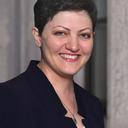Modern Middle Eastern Studies MSc
The MSc in Modern Middle Eastern Studies is a twelve-month, taught master's course, offered jointly by the Faculty of Asian and Middle Eastern Studies and the Oxford School of Global and Area Studies (OSGA). It provides intensive training in several fields of knowledge based on a combination of lectures, tutorials and essay writing allowing students to develop research and writing skills with training in appropriate theoretical and methodological approaches, through supervision of a dissertation on a subject of the student’s choice. The MSc teaches both qualitative and quantitative methodologies through assessed work.
The course offers two tracks:
Language track
This track is designed for students who already have intermediate to advanced -level ability in Arabic and who wish to further develop these skills through intensive classes.
Non-language track
This track is designed for students who already have full research fluency in at least one of the languages of the region - Arabic, Hebrew, Persian or Turkish - through being either a literate native speaker, or possessing a degree in the language (a course specifically focusing on language and acquisition of the capacity to read untranslated texts in a Middle-Eastern language, not a disciplinary or area studies degree in which the applicant has taken language classes). Non-native speaker applicants who think they might qualify for the non-language track who do not have such a degree should explain specifically why they think they qualify, eg through extensive formal study and experience in the region outside the scope of a degree program. Applicants who do not have formal language-study credentials, and particularly applicants who may want to be seen as prospective non-language-track students (including all Hebrew, Persian and Turkish applicants) may wish to submit writing samples that demonstrate the ability to use untranslated sources (preferably written) in a Middle Eastern language.
Course structure
Students on the language track take language classes throughout the three terms of the course, plus two optional papers taken in the second and third terms. Students on the non-language track take three optional papers, one in each of the three terms. Students will choose from a list of optional papers published annually which are taught through a combination of lectures, tutorials, and non-assessed formative (non-assessed) essays.
Tutorial options offered regularly include the following:
- Authoritarian Politics in the Middle East and North Africa
- History and Politics of the Islamic Republic of Iran
- History of the Maghreb since 1830
- History of the Middle East, 1860-1970
- Islamism and Modern Islamic Movements
- Main Themes in Israeli Politics and Society
- Mass Media in the Middle East
- Modern Islamic Thought
- Modern Turkish Literature: Texts and Contexts
- The Political Economy of the Middle East and North Africa
- Clerical Institutions in Contemporary Iran
- Politics of the Maghreb
- Politics of the Middle East
- Social Anthropology of the Middle East
Applicants may wish to confirm with the course coordinator that a specific option listed above will be available to the applicant’s cohort, as scheduled sabbaticals or other research leave may sometimes interrupt the annual teaching schedule.
Graduates from the MSc Modern Middle Eastern Studies may choose to pursue careers in academia, government, business, journalism and the NGO sector. The degree is particularly useful in preparing students wishing to continue study at the doctoral level through its provision of both qualitative and quantitative research training.
Assessment
Students in both tracks take assessed qualitative and quantitative research methodology modules, and both tracks write a dissertation which will be undertaken independently under the supervision of a member of faculty tutor with relevant expertise. Preparation for the dissertation will take place through the Research Methods course and relevant optional papers and submitted by the beginning of September. Fieldwork for the dissertation is not required, but it is not discouraged for those students able to carry it out.
Optional papers will be examined through essays at the end of each term.
The language paper for the language track will be examined by a timed examination at the end of Trinity term.
The Middle East Centre
The Middle East Centre (MEC) serves as both the University's Middle East Studies centre and as a Centre of St Antony’s College. It hosts a weekly seminar, and an annual lecture - The George Antonius Annual Lecture in Trinity (summer) term. The resources of the MEC are available to all members of the faculty. Its library holds some 35,000 books in Western and Middle Eastern languages, with an emphasis on the 18th century to the present. The MEC holds an extensive collection of journals and periodicals, and receives newspapers in Arabic, Persian, Turkish and Hebrew. It holds a rare book collection and an extensive microfilm and microfiche collection. The MEC Archive is home to the Private Papers Collection and photographic archive.
Libraries and museums
Aside from the MEC, there are three other libraries that will be of use to students on the MSc Modern Middle Eastern Studies course. The Nizami Ganjavi Library, part of the Faculty of Asian and Middle Eastern Studies, houses the collection of books and periodicals in Western and Middle Eastern languages with a particular emphasis on the period from the rise of Islam to the early modern period. The Charles Wendell David Reading Room of the Weston Library is the means of access to the extensive Asian and Middle Eastern manuscript collection as well as reference works and secondary sources received on deposit by the Bodleian Library. Finally, Wadham College Library houses a collection of Persian books.
Faculty resources
Students have access to the University's centrally provided electronic resources, the Faculty's IT Officer, and other bibliographic, archive or material sources as appropriate to the topic. There is a computing room for the use of graduate students in the Faculty of Asian and Middle Eastern Studies, as well as a common room where tea and coffee are available and staff and students can meet.
Oxford colleges
Oxford’s colleges provide support, facilities and membership of a friendly and stimulating academic community. All colleges provide library and IT facilities, welfare support, and sports and social events. Although your academic studies will be directed by the faculty, colleges can be a valuable source of support. Please check the application guide for information about colleges.
Applying for Oxford funding
For the majority of Oxford scholarships, all you need to do is submit your graduate application by the January deadline for your course. There’s no separate scholarship application process or extra supporting documentation required for funding. Based on the information supplied in your graduate application, you will be automatically considered for scholarships where you meet the eligibility criteria with most scholarships using academic merit and/or potential as the basis on which award decisions are made.
However, please note, in addition to submitting an application form for your chosen course, the scholarships listed on the following page also require an additional application to be considered for them.
Faculty funding
The Faculty has a limited number of funding across its wide range of subject areas. Please see opportunities that are currently known to the Faculty and which may be available in the current admissions cycle. It is possible that further scholarships may become available at a later point.
The Faculty of Asian and Middle Eastern Studies is taking part in initiatives to improve the selection procedure for graduate applications, to ensure that all candidates are evaluated fairly.
Socio-economic data (where it has been provided in the application form) will be used as part of an initiative to contextualise applications at the different stages of the selection process.
Can I submit one 4,000 word piece of written work instead of two 2,000 word pieces?
Not for our courses. We ask for two pieces which will show a range of ability rather than two highly similar pieces and you may find it useful to check the criteria your written work will be assessed for when choosing your samples. Your samples can be extracts from longer pieces of work and if this is the case, please indicate this on a cover page, or at the beginning of each piece of work.
Where can I find out about funding available for applicants?
Your best guide to funding opportunities will always be the University's admissions webpages. We recommend that you use the Fees, funding and scholarship search which is a useful tool for finding any funding that you may be eligible to apply for.
If you submit your application by the January deadline you will automatically be considered for the majority of Oxford scholarships. There’s no separate scholarship application process or extra supporting documentation required for funding. Based on the information supplied in your graduate application, you will be automatically considered for scholarships where you meet the eligibility criteria with most scholarships using academic merit and/or potential as the basis on which award decisions are made.
However, please note, in addition to submitting an application form for your chosen course, the scholarships listed on the following page also require an additional application to be considered for them.





